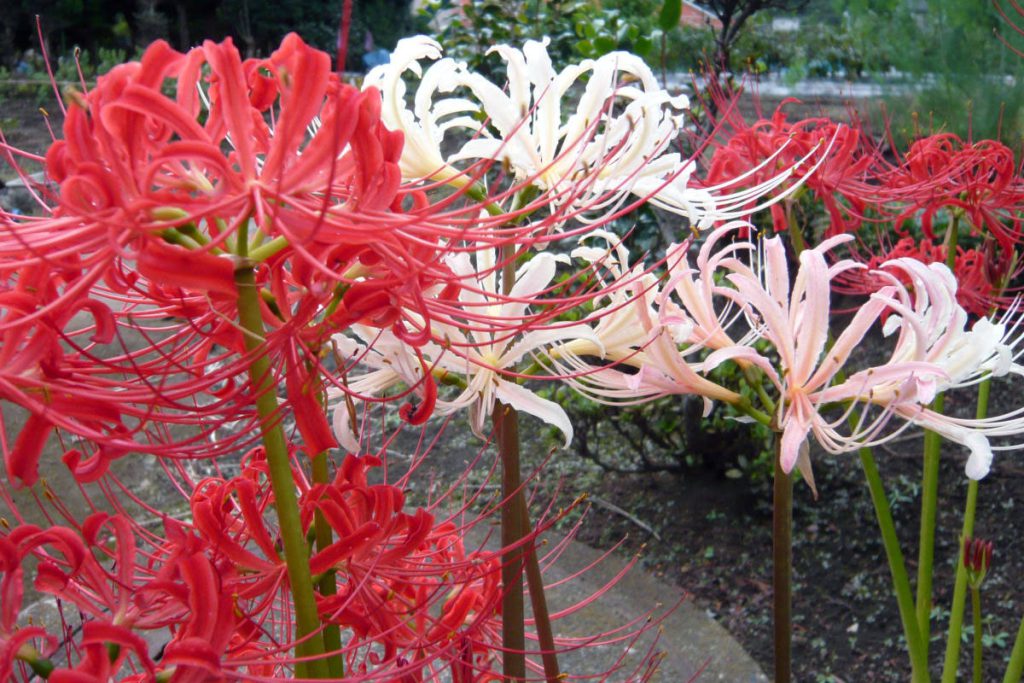
♭♯♭ 曼殊沙華♭♯♭
I think it was in my first year of high school. I became able to read music scores, and if I could read them, I could grasp the musical image. It was so interesting that I often went to music stores. During that time, I came across “Manjushage” in “The Complete Works of Japanese Songs”. My first impression was that the song, which started with “Gonshan, Gonshan,” seemed like a pilgrim’s hymn. But that was all there was to it at the time. Later, I had the opportunity to thoroughly read the poem written by Hakushu Kitahara, and I was horrified when I deeply learned about it. “Gonshan” means the daughter of a good family, and the daughter goes to the grave during the Higan (equinoctial week) and folds seven higanbana (cluster amaryllis). This is the age of an aborted fetus who could not be born due to circumstances. The sad reality that only women can experience flowed into a melody like a pilgrim’s hymn.
高校1年の時だったように思います。楽譜が読めるようになって、楽譜を読めば曲想がつかめる様になりました。それが面白くてよく楽譜店に通ったものです。そんな中出くわしたのが『日本歌曲全集』の中の「曼珠沙華」です。「ごんしゃん、ごんしゃん」で始まるその曲はまるで御詠歌のように思えたのが第一印象です。しかしその時はその限りでした。のちに北原白秋作の詩をしっかり読む機会があって、その内容を知るに及んで慄然としました。「ごんしゃん」は良家の娘、その娘が彼岸時にお墓に行って彼岸花を七つ手折るわけです。事情があって生むことが出来なかった水子の歳の数です。女性にしか体験できない悲しい現実が、御詠歌の様な旋律の中に流れていきました。
